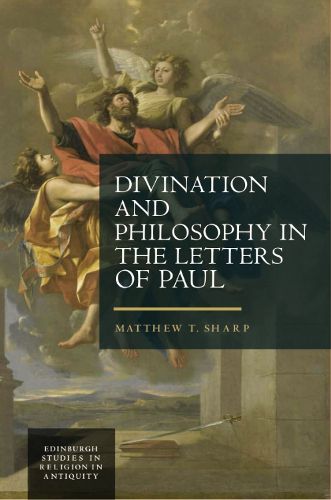Readings Newsletter
Become a Readings Member to make your shopping experience even easier.
Sign in or sign up for free!
You’re not far away from qualifying for FREE standard shipping within Australia
You’ve qualified for FREE standard shipping within Australia
The cart is loading…






This book analyses the apostle Paul's claims to receive and interpret knowledge from divine sources within the context of divination in the Graeco-Roman world. Each chapter studies a particular aspect of divination in Paul's letters in comparison with similar phenomena in the Graeco-Roman world, dealing in turn with the underlying logic of divination (in the context of ancient philosophical conversations), visionary experience, prophecy and divine speech, the divinatory use of texts and the interpretation of signs. As such, the book forms an in-depth study of divine communication in Paul's letters, integrating this theme with the broader topics of cosmology, anthropology, eschatology and theology. While New Testament texts and early Christian figures have traditionally been studied from the vantage point of theological categories (such as 'revelation') that isolate early Christianity from its historical context in the Graeco-Roman world, this book re-reads Paul's thought and practice concerning divine communication within, not against, the Graeco-Roman thought and practice of divination. In doing so it illuminates the coherence and connections both between Paul and his historical context and between diverse topics of Paul's letters that have usually been studied in isolation from each other.
$9.00 standard shipping within Australia
FREE standard shipping within Australia for orders over $100.00
Express & International shipping calculated at checkout
This book analyses the apostle Paul's claims to receive and interpret knowledge from divine sources within the context of divination in the Graeco-Roman world. Each chapter studies a particular aspect of divination in Paul's letters in comparison with similar phenomena in the Graeco-Roman world, dealing in turn with the underlying logic of divination (in the context of ancient philosophical conversations), visionary experience, prophecy and divine speech, the divinatory use of texts and the interpretation of signs. As such, the book forms an in-depth study of divine communication in Paul's letters, integrating this theme with the broader topics of cosmology, anthropology, eschatology and theology. While New Testament texts and early Christian figures have traditionally been studied from the vantage point of theological categories (such as 'revelation') that isolate early Christianity from its historical context in the Graeco-Roman world, this book re-reads Paul's thought and practice concerning divine communication within, not against, the Graeco-Roman thought and practice of divination. In doing so it illuminates the coherence and connections both between Paul and his historical context and between diverse topics of Paul's letters that have usually been studied in isolation from each other.